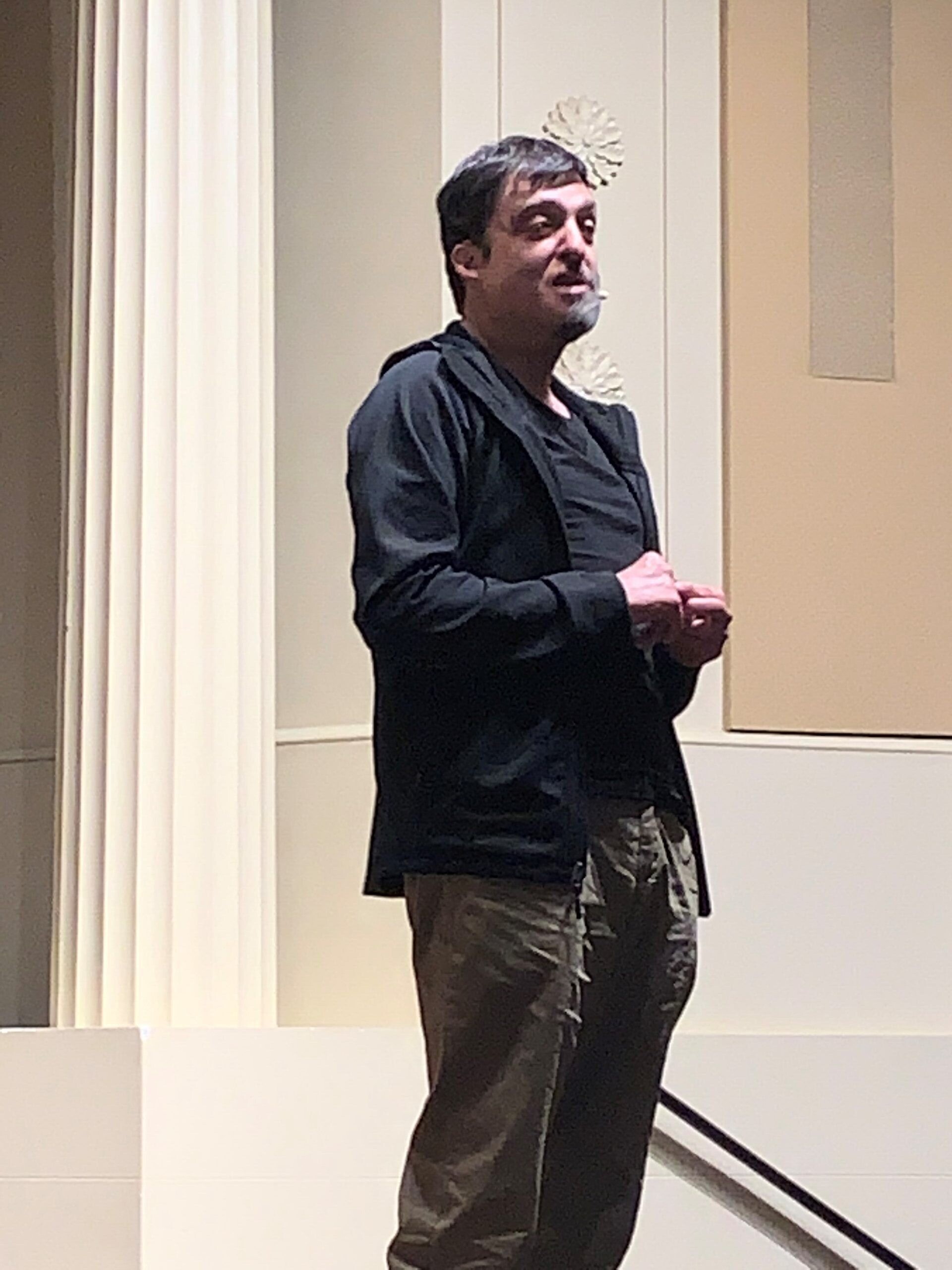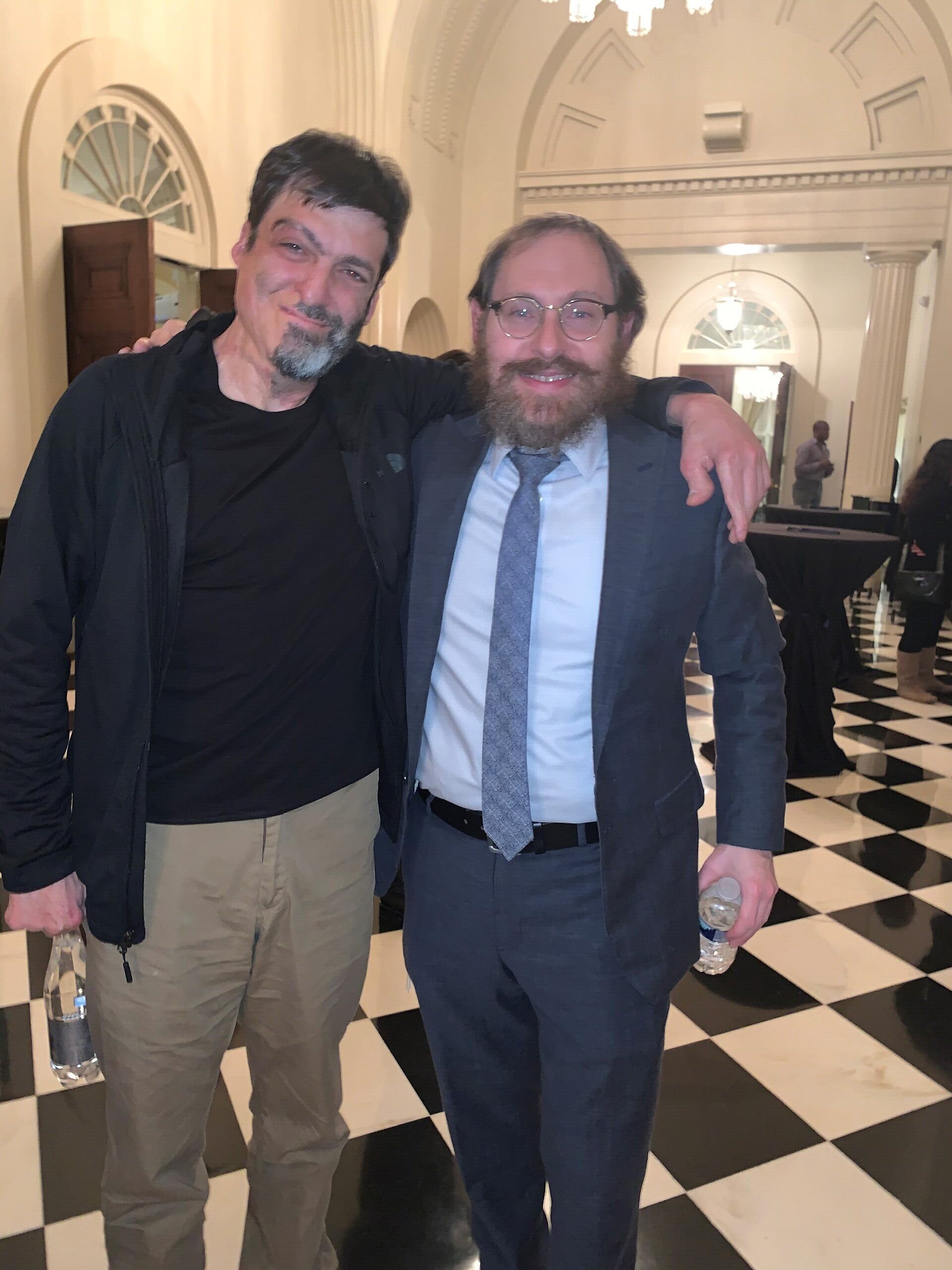Ariely LIVE! Unravels Human Behavior
Professor Dan Ariely engaged a sell-out crowd Feb. 9 at the Historic Academy of Medicine at Georgia Tech in conjunction with the Intown Jewish Academy.
After 37 years with the Atlanta Journal-Constitution and now with the AJT, , Jaffe’s focus is lifestyle, art, dining, fashion, and community events with emphasis on Jewish movers and shakers.
Dan Ariely, an Israeli Duke University professor whose TED Talks are seen by 15 million viewers, engaged a sell-out crowd Feb. 9 at the Historic Academy of Medicine at Georgia Tech in conjunction with the Intown Jewish Academy.
As professor of psychology and behavioral economics at Duke, and previously MIT, Ariely’s mission is to deliver his insight about human behavior and how to mold it into a mainstream position.
Introducing him was Rabbi Ari Sollish, director of the IJA at Chabad Intown on the BeltLine. At the event attended by 230, the colorful fruit, nut and date Tu B’Shevat buffet contrasted with the elegant black and white marble floors of the historic academy.

Sollish began the event by comparing the New Year for Trees demarcation before the holiday and looking forward to the next upcoming botanical year. “The sap is rising inside the trees, which may look cold and baron on the outside. Under the surface, something is happening. Often just after our darkest and coldest moments, there is life and growth. The sun, soil, seeds and water are greater as a whole than the sum of its parts.”
When Ariely took the stage, he paced in his casual Israeli style. Born in New York and raised in Israel, he is the author of three New York Times bestselling books. Known for his clunky red-toned shoes, he began by explaining that his asymmetrical beard resulted from a fire accident.

Tragically, he was mixing magnesium for a teen program rally, which exploded and resulted in years of hospitalization. He explained all the varying segments of his own busy business model. In addition to his academic work at Duke, he consults with governments and companies. An example of modifying human behavior was a consultation with the Israeli government on product food labeling where red circles were used to indicate bad or unhealthy ingredients and green circles for good. “My third life is working on startups.”
Ariely involved the audience by asking for a show of hands in honestly responding to personal questions: Who texts while driving? Has unplanned or unprotected sex? Washes hands in the bathroom? The bottom line is “people do not change behavior with more evidence. There is no limit to human stupidity. Example: putting a high fine on texting results in more accidents because people dangerously lower the phone under the steering wheel.”
He made the point about how free offers or 10 percent off or 20 percent off don’t necessarily change behavior. Based on two factors, friction and motivation, Ariely analyzed how working with pharmaceutical companies to shift pill users from brand to generic led to a litany of trial and errors to arrive at the desired results. He lamented, “Sometimes giving a bonus then taking it away gets a desired change. Also, texts posed as coming from one’s child get a good response, … just like assessing how much friction balances how much fuel to add for a rocket getting into outer space. Or refrigerator shelves, why is the healthy stuff put so low down it’s hard to access? That’s friction.”

A particularly poignant consultation was his work with the Kenyan government in motivating impoverished people to save weekly for emergency use and the mechanics to inspire self control. “We hate losing more than we enjoy winning” appeared a lot in his analyses. His biggest laugh, also seen on one of his TED Talks, was, “In Soweto, people spend a year’s income on funerals versus a wedding like we do in the U.S. Because for a funeral, you only have one!”
The bottom line is we flawed humans have irrational behavior. Ariely’s non-academic language is meant to educate the wider public: We’re in a world of temptation. At the supermarket, doughnuts win.
Concluding with a Jewish subtext, Ariely posed, “More religious Jews have more space to deal with other things because they are not tempted all the time and struggling to make decisions. You can’t be 90 percent vegetarian and decide, ‘Is this the day’? The more Orthodox the Jew, the more liberated.”




comments